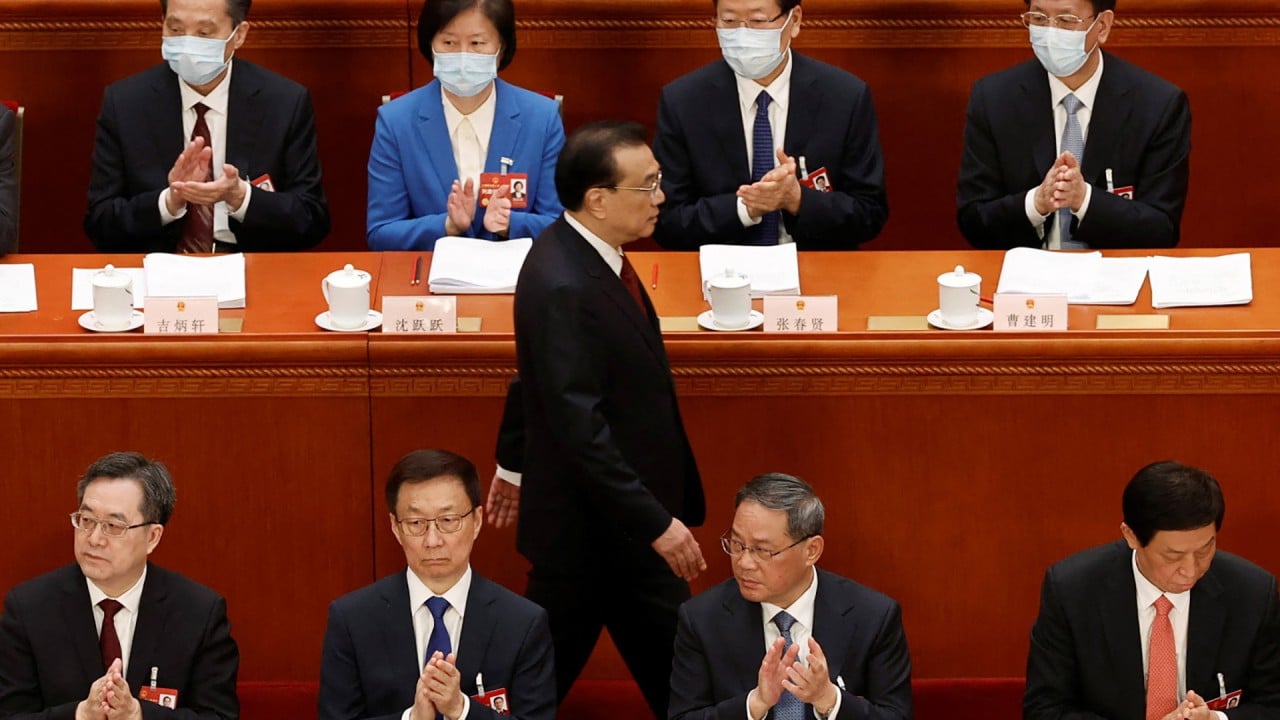
China trade: economic recovery tested as exports, imports dip further at start of 2023
- China’s exports fell by 6.8 per cent in combined figures for January and February, compared with a year earlier, while imports fell by 10.2 per cent
- It is the first major economic indicator released since China fully relaxed its zero-Covid policy and restarted its economic engine at the beginning of the year
China’s trade continued its recent decline at the start of the year, highlighting the challenges facing Beijing as it struggles to lift its economy after three years of zero-Covid.
Exports fell by 6.8 per cent from a year earlier to US$506.3 billion in combined figures for the first two months of 2023, data released by China Customs on Tuesday showed.
Imports, meanwhile, also continued their downward trend in January and February, falling by 10.2 per cent from a year earlier to US$389.42 billion.
“[The drop in China’s exports] is in line with market expectation,” said Zhang Zhiwei, chief economist at Pinpoint Asset Management. “China’s economy will have to depend more on domestic demand this year.”
China’s exports sector may remain suppressed for the rest of the year, and it is likely to be a drag on economic growth, he added.
Its trade figures for January and February are combined to smooth out the impact of the Lunar New Year holiday, which falls at different times during the two months in different years.
The data is the first major economic indicator released since China fully relaxed its zero-Covid policy and restarted its economic engine at the beginning of the year.
Theoretically, imports should improve as restrictive measures from Covid have been removed
Zichun Huang, China economist at Capital Economics, said while exports in the first two months of the year fared better than expected, “they may drop back again before long as the one-off boost from easing virus disruptions fades and cooling foreign demand remains a drag”.
The deeper contraction of imports is more of a shock to the market than that of exports, according to Iris Pang, chief Greater China economist at ING Bank.
“Theoretically, imports should improve as restrictive measures from Covid have been removed,” she said.
“But the data tell us that many import items continued to fall in January and February, reflecting that demand for infrastructure goods will only gradually pick up as China reopens.”
Among all products, import volumes of semiconductors saw the biggest dip, declining by 45.1 per cent, while integrated circuits also dropped by 26.5 per cent.
Meanwhile, in a separate report issued by the National Development and Reform Commission (NDRC) on Sunday, it said there will be a slowdown in the growth of global economy and trade this year, and competition in international trade and for foreign investment will intensify.
Downward pressure on the global economy is being compounded by the effects of protectionism, growth of global trade is slowing down, and competition in the international market is intensifying
“Downward pressure on the global economy is being compounded by the effects of protectionism, growth of global trade is slowing down, and competition in the international market is intensifying, which has made it more difficult for China to maintain stable export growth,” the NDRC report said.
Beijing is clearly aware of the challenge the economy faces from weak global demand and the risk of supply chains relocating away from China, Zhang said.
“The top priority for the government is to boost confidence among private and foreign investors in China,” he added.
On Tuesday, foreign minister Qin Gang highlighted China’s trade with Russia, saying that it should use a currency which is “safe and trustworthy”.
Currencies should not be the trump card for unilateral sanctions, still less a disguise for bullying or coercion
“Currencies should not be the trump card for unilateral sanctions, still less a disguise for bullying or coercion,” he added.
Trade between the two countries hit record highs last year following the outbreak of war in the Ukraine, and the latest data confirmed China’s exports to Russia rose by 19.8 per cent, year on year, in the first two months of 2023, while imports rose by 31.3 per cent.
Qin said that China and Russia have successfully developed a way of strategic mutual trust and neighbourly friendship, which has become a model of international relations.
“The China-Russia relation is based on no alliance, and no confrontation, and it is not targeted at any third party, it is not a threat to any country, nor it is subject to any interference or discord sung by a third country,” he said.
“With China and Russia working together, the world will have the driving force toward multipolarity and greater democracy for international relations.”
With US making ‘game changing’ moves, China steps up African economic ties
Also in the first two months, trade with the European Union and the United States continued to decline sharply as high inflation undercut demand for Chinese products.
Exports to the European Union fell by 12.2 per cent year on year, while imports contracted by 5.5 per cent, the Customs data showed.
Shipments to the US tumbled by 21.8 per cent compared to the same period last year, while US imports declined by 5 per cent.
Exports to the Association of Southeast Asian Nations – China’s biggest trading partner – rose by 9 per cent year on year, while imports contracted by 8.3 per cent.


